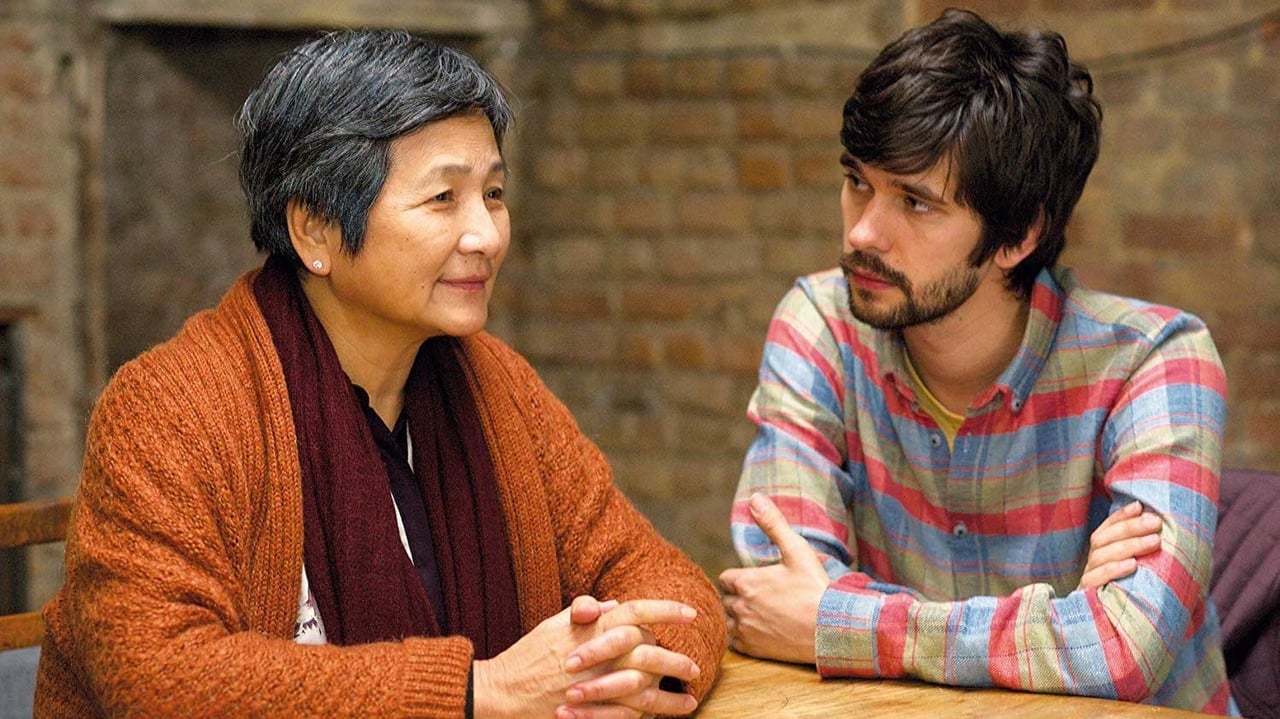FlashCallahan
A mother tries to come to terms with sudden loss, and attempt to understand who her son was, after his untimely death. Her world is suddenly changed in more ways than one by the presence of his (unknown to her) lover. Together, they attempt to overcome their grief whilst struggling against not having a shared language........Although it's not the most cinematic experience you'll ever come across, Lilting is one of those movies where we have just a few characters in the film, but they hold you in awe for the duration. If I were to some up the film in one word, it would simply be, Natural. There are times when you feel like your not watching a drama, you feel like you are there with Whishaw and Cheng, almost like some chaperone, but not knowing who for, as each are as equally grief stricken and strong at the same time.There performances here are brilliant, and even though they communicate through a third party, the emotional connection is evident, and gets stronger and stronger as the film progresses. Peter Bowles adds some much needed Comic Relief to the movie, but it's only subtle, and doesn't deter you away from the main narrative. Flashbacks flesh out the emotional depth of the characters, and there's one scene involving chopsticks and bacon, that had tears streaming down my face.It's beautifully written, touching, romantic, funny, and heart-warming, but the clever thing is that it holds this air of tension as to how Cheng will react to the films fundamental revelation.A hidden gem from 2014, really worth seeing.
Armand
more than a film, a gem. touching, seductive, poetic, delicate, a kind of spring morning. a film about fundamental small things. but not only the script is special but the rare and impressive art to use the right measure. because it is a gentle job, splendid for music and for the nuances of acting, for image and for the translation of clash between worlds, the form of memories, the silk touch, the great job of Pei+Pei Cheng.a film who has an unique delicacy , maybe not great but useful for each scene. a kind of dance with a spectacular choreography. it is difficult to define more than a happy discover. so, see it. it could be one from expected films.
lasttimeisaw
The debut film from Cambodian director Hong Khaou, which is indeed a UK production, pairs the outed actor Ben Whishaw with Chinese actress Pei-Pei Cheng, who is the Kungfu heroine in her prime and has launched a strong comeback in Ang Lee's masterful CROUCHING TIGER, HIDDEN DRAGON (2000, 10/10) as the villainous Jade Fox. And the story is rather plain-speaking, Whishaw is Richard, a young gay man loses his boyfriend Kai (Leung) in a car accident, and he has to take care of Kai's mother Junn (Pei-Pei), who has been put in an elderly house since Kai never comes out to her. Firstly, it might strike that the after-trauma coming-out story is the main dramatic task Khaou tries to transpire here, not simply because Kai was just going to come out to her finally before the darning accident. However, it comes off rather unoriginal in year 2014, instead, the film puts a lot of thoughts in joggling with the deeply rooted cultural differences here and with a touch of humor. Junn is a Cambodian-Chinese, although has been staying in UK for more than half of her lifetime, she has been (inexplicably) refusing to learn English, so the communication mostly relies on a translator Vann (Naomi Christie), whose genial presence is imperative regarding the situation but also a harsh intruder in their privacy. Structurally speaking, the film is a tiny-budgeted chamber piece, with occasional scenic shots in bleak hue to adjust the right sentiment. Whishaw sends off a whiff of empathetic poignancy as the bereaved boyfriend, alternatively immersed himself into the intimate memories of Kai, and puts on a strong facade to face Junn, who never ease up towards him. Pei-Pei, fires up in a more moderate range of grief (also due to the memory loss set-up of Junn), is much more presented as confused and dissatisfied in her plight, and the telling jealousy which she finally acknowledged in the dialog, it is a well-modulated performance, but as a native mandarin speaker, Pei-Pei's utterance is too formal and rigid, more like a theatrical rendition than a lifelike talk, especially the scenes with Leung, who clearly is not Chinese and his mandarin is jarringly bad, one might find it is plausible because he is basically assimilated by the western culture (since his English is pretty British), but when it comes to the main language he has been communicated with his mother ever since his birth, it is disappointing to the fact that Khaou has failed to find a real mandarin-speaker for the role instead (besides that Leung is quite an eye-candy in this film), surely, for a foreign ear, it hardly matters. Naomi Christie, a débutante in acting, grants Vann a fresh air of pertinence not only as a Good Samaritan whose good offices always allow her to change the literal translation, moreover, she surprisingly prompts herself from an unattached bystander to a blunt participator during her own involvement of the matter. Among the cast there is the Veteran Peter Bowles, plays Alan, the suitor of Junn in the elderly home, it is through his courtship to Junn, viewers can resort to a diverting corner of laughters. Before Vann's presence, everyone goes well although they cannot share any common language, but as soon as they can get through each other through a third person, the distinctive discrepancy of their lifestyles is too much for Junn to handle, the singular part when they try to frankly disclose each other's bad habits, Junn feels uncomfortable with Alan's cop-a-feel conducts but is offended when he accuses her of bad breathe due to constantly eating garlic and instinctively gets even with his equally smelly body odor as a Caucasian. These are stock cultural biases which one can always generate some chuckling from, in here, it hits squarely on the nose. Odour is also romantically linked here between Richard and Kai, "smell my armpit" is not a common line we get from movies, and the sensitive characterization of the abiding smell of the deceased is a genuine tear-jerker.Hong Khaou's debut film is a welcoming gem in the queer cinema, quite an emotional grinder which sends many positive messages such as mutual understandings, braving oneself to face the hard times and grief, then most importantly, one maxim to remember "all children will feel guilty when their parents are old". PS: news arrived, the film has just grabbed 3 BIFA nominations (short for British Independent Film Awards), including BEST DEBUT DIRECTOR and BEST ACTRESS, congratulations!

